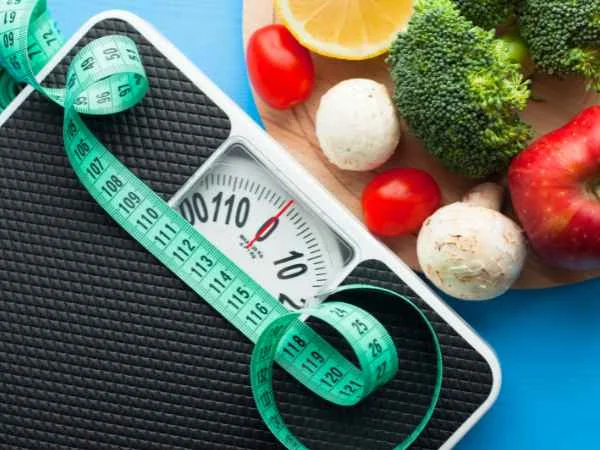Bringing a new baby into the world is one of the happiest moments in life, but the weeks following birth-the “fourth trimester”-are some of the most important when it comes to a mother’s health and recovery. The food you take in now, your postpartum diet plan, plays an enormous role in helping your body heal, regain strength, and support breastfeeding. This guide aims to explain in simple terms, understandable by all, what the best diet after delivery is, what foods are most important for new moms, and what the most relevant breastfeeding nutrition tips are.

Why is postpartum nutrition important?
Childbirth is a miracle, but it really takes a great toll on a woman’s body. It takes some time and a great amount of nutrients after delivery as the body rebuilds itself from the stress of pregnancy and childbirth. Your blood volume has decreased, your tissues must repair themselves, your hormones are changing, and much of your energy will go toward caring for your newborn.
With breastfeeding, your body needs more calories and nutrient intake to produce good, healthy milk for your baby. Good nutrition not only helps in physical recovery but also aids in your mental well-being, reducing the risk of postpartum depression and making you feel more energized and capable of taking care of your little one.
The best post-delivery diet is therefore meant to feed your body with the right proportion of proteins, vitamins, minerals, carbohydrates, and fluids that will help it to heal and thrive during this critical period.
Nutrients Every Postpartum Mom Needs
Understanding the nutrients that your body needs will allow you to make proper food choices.
Protein: The Building Block of Healing
Protein is the single most valuable nutrient that aids in tissue repair, infection-fighting, and strength maintenance in the body after birth. Include proteins such as eggs, chicken, fish, dairy products, lentils, beans, nuts, and seeds in each meal.
Iron: Battling Fatigue, Building Blood
After delivery, you may be very tired due to blood loss and subsequent low iron stores. Iron will help rebuild your red blood cells and prevent anemia. Some of the best sources are green leafy vegetables, red meat, beans, lentils, and fortified cold cereals. You can increase your absorption of iron by eating foods containing vitamin C, such as oranges, when you eat your iron-containing foods.
Calcium & Vitamin D: Strong Bones for Mom and Baby
Calcium helps to keep your bones and teeth healthy and strong. This is particularly important if you are breastfeeding. All types of milk, yogurt, and cheese count as good sources of calcium. Vitamin D, coming from the sun and some foods, such as fortified milk, enables your body to absorb calcium.
Omega-3 Fatty Acids: Brain Boosters
Healthy, particularly omega-3s-are essential to the health of your brain and your baby’s. You can get them in fatty fish like salmon and sardines, as well as in flaxseeds and walnuts.
B Vitamins & Folate: Energy and Mood Support
B vitamins allow your body to turn your food into energy and generally put you in a better mood. The best sources of B vitamins are whole grains, nuts, seeds, leafy greens, and legumes.
Hydration: Water to Heal and to Make Milk
Adequate water and fluid intake maintains hydration of the body, maintains digestion, and helps in lactation. Drink at least 8-10 glasses per day; soups, herbal teas, and fresh juices count too.
Top 10 Nutrient-Dense Foods for Postpartum Recovery
Here are some powerhouse foods to include in your postpartum diet plan:
- There are also high contents of proteins in eggs and many valuable nutrients.
- Lentils and beans provide adequate plant-based proteins and iron.
- These greens are full of iron, calcium, and vitamins.
- Nuts and seeds contain healthy fats, protein, and minerals.
- Fatty fish generally contains a high amount of omega-3 fatty acids.
- Dairy Products-milk, cheese, and yogurt supply calcium and protein.
- Whole grains are the base for sustained energy: brown rice, oats, whole wheat.
- Fresh fruits include vitamins, minerals, fiber, and antioxidants.
- Soups and broths are useful in the hydration and nourishment of the body.
- Healthy oils, such as olive or ghee, promote good energy and also add flavor.
Postpartum Nutrition Around the World: Traditional Healing Foods
Most cultures have a list of recommended food items for the new mother that are comforting and nutritious at the same time. In the Indian context, methi na thepla or fenugreek flatbread, bajra rotla or millet bread, and kadha or herbal drink have been traditionally consumed. There are specific healing foods that form part of other cultures, be it the nourishing bone broths in Asian countries or hearty stews in Mediterranean countries. You can definitely fit in some of the traditional foods that you love into your diet, as these are comforting, with the right level of nutrition for recovery.
Balancing Your Plate: Meal Planning and Timing
The best approach to your postpartum diet plan would be a balanced plate. At every meal, include:
Complex carbohydrates to provide energy: whole grains, vegetables.
Protein for tissue repair: Eggs, poultry, beans.
Healthy fats-nuts, avocados, and oils-that keep your brain healthy and full.
Eating smaller meals more frequently can keep your energy up and may help with hunger, especially while breastfeeding. Keep easy snacks on hand, such as fresh fruits, nuts, or yogurt.
Hydration and Fluids: The Unsung Heroes Stay hydrated by drinking plenty of water. It keeps your body functioning well and also helps maintain the milk supply. Herbal teas, broths, and soups are good to keep up fluid intake. Avoid caffeine as it dehydrates the body and can have effects on your baby, too.
Mental Health and Nutrition: The Healing of Body and Mind. Food and mood are linked with each other. Nutrients like omega-3 fatty acids, B vitamins, magnesium, and antioxidants reduce fatigue and may improve one’s mood. Eating well supports your mental well-being during the postpartum period and reduces the chances of anxiety and depression. So do not stress about not eating perfectly all the time. Mindful eating and self-compassion are just as important as food choices.
Practical Tips for Stress-Free Postpartum Nutrition
Caring for a newborn is a full-time job, so here are some easy tips that will help keep you going with nutrition.
- Prepare batches of healthy meals and freeze them for busy days.
- Keep healthy snacks around. Ask family and friends to help with cooking or buying groceries.
- Online grocery shopping, when possible, is a great alternative for you.
- Remember, something is better than nothing, and it is not about perfection. Exercise, Sleep, and Overall Wellness Recovery isn’t just about food.
- Gentle exercise, such as walking or yoga, helps your body heal and lifts your mood.
- Good sleep will help your healing and support your body in using the nutrients.
Remember to follow your healthcare provider’s recommendations for you on wound care and pelvic floor exercises, too.
When to Seek Professional Help
If you find you are tired even after eating well, or if you have mood changes, be sure to speak with your doctor. Nutritional deficiencies can be treated, as can postpartum depression. A registered dietitian can provide an individualized postpartum diet plan based on your needs.
FAQs
Can I diet while breastfeeding?
- It’s better to nourish first, and then, should you wish to lose weight, it’s best done more slowly when you feel ready.
What foods should I avoid?
- Use processed snacks, sugary drinks, caffeine, and alcohol in moderation.
How do I increase my milk supply naturally?
- Eat well, be hydrated, breastfeed often, and try galactagogues like oats or fenugreek as recommended.
Is caffeine alright?
- Moderate levels of caffeine won’t harm, but too much may disturb your baby’s sleep and also make you jittery.
Sum up,
Your diet plan after childbirth forms an important part of your new life. A range of diverse nutrient-dense food consumption, hydration, meal timing, and mental health care will keep you on track toward recovery and a happy journey of motherhood. Remember, treat yourself kindly, seek help when needed, and know every little step toward good nutrition counts.


